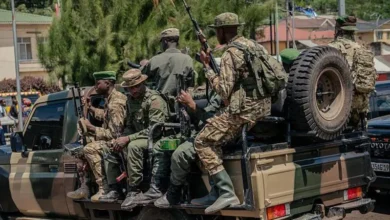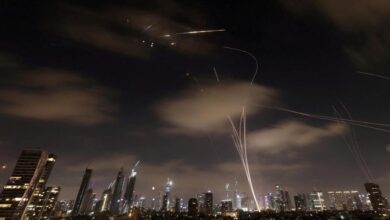Devastating crash threatens Air India’s ambitious turnaround


Days after the devastating Air India-171 crash killed at least 270 people, investigators from across the world are putting their heads together to find out what exactly went wrong. So far, there is no indication of where the fault lies, and it could take months before we have an answer.
But as the waiting game begins, the Tata Group – which owns the airline along with other iconic brands such as Jaguar Land Rover and Tetley Tea – confronts a litany of unprecedented challenges at a critical juncture of the carrier’s ambitious turnaround.
The narrative was just beginning to change for Air India in the lead-up to the tragedy.
In the hands of a new private owner – the Tatas bought the airline from the government in 2022 – Air India showed an operating profit, better revenues and fewer customer complaints.
Although disgruntlement about poor service standards, dysfunctional in-house entertainment and flight delays hadn’t entirely gone away, there was an understanding that these were niggling transition troubles as the airline undertook multiple complex mergers to streamline its operations.
Cosmetically the improvements were beginning to show too; slick new livery and retrofitted interiors on some aircraft, brand-new A-350s in the fleet deployed on key routes and a record-breaking order for new planes to retire old ones and service India’s booming aviation market.
After years of neglect when Air India was under state ownership, the Tatas said earlier this year that they’d embarked on the “final climb phrase” of the carrier’s transformation journey towards becoming a “world class” airline.
Last week’s horrific crash has now cast a shadow on these plans.
NurPhoto via Getty Images
Under Tata Air India underwent a brand transformation with slick new livery and new A-350s in the fleet
“I’ll never fly Air India again” was a common refrain heard among people gripped by panic and fear last week. While Air India, and particularly the Dreamliners it flew, have a strong safety record, this knee-jerk reaction was to be expected, say experts, when a crash on this scale happens. This loss of passenger confidence could derail the turnaround efforts that were already under way.
A spate of other reported incidents this month – including engines developing suspected technical snags and a hoax bomb threat aboard a plane carrying 156 passengers from Phuket to Delhi – could worsen matters.
“There will definitely be a short-term impact where people may be wary of flying Air India. The disaster was very tragic, many lives have been lost and the event will stay in people’s memories for long,” said Jitendra Bhargava, a former executive director with the airline.
“We are already hearing of cancelled bookings,” Shukor Yusof, founder and analyst at Singapore-based Endau Analytics, told the BBC.
“Air India was a difficult flag carrier to turn around, to begin with, bogged down by legacy and financial issues. There will be a need to pause as they grapple with the aftermath of the tragedy and this [the turnaround] will likely take more time than management had envisaged.”
A lot of resources will now have to be redirected to non-operational issues dealing with the crash, such as insurance, legal and reputation damage in the coming weeks, months and even years, says Mr Yusof.
Drawing parallels with the unprecedented twin tragedies that Malaysia Airlines suffered in 2014, he said it took a full decade for the airline to turn a profit after those crashes.
Air India will require time to “heal” too, he said, whereas the advantage of the exceptional growth in air travel in India “may now go to its rivals”.
The strain on operations is already beginning to show. Air India has said it is cancelling international services on its wide body aircraft by 15% until mid-July amid enhanced safety inspections and rising airspace restrictions.




